How a former King helped build Putin’s hockey dream, then expedited Finnish team’s escape
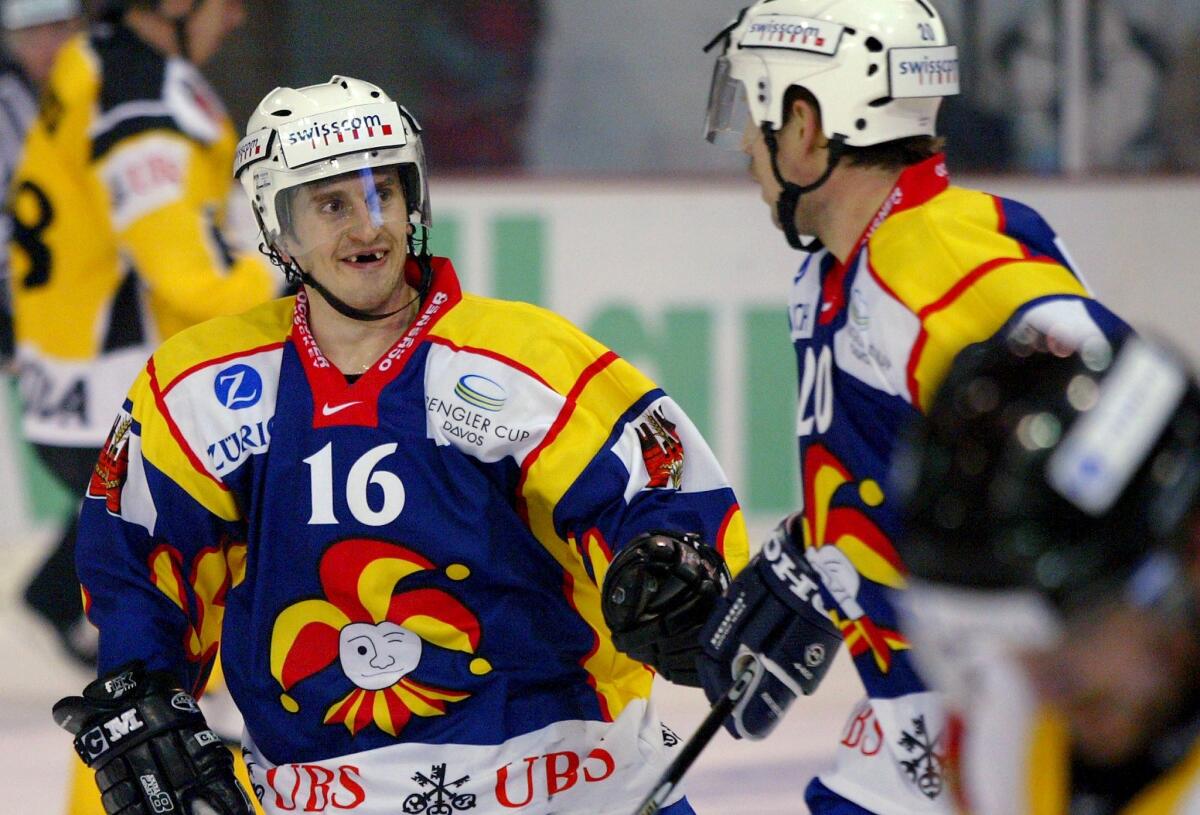
- Share via
HELSINKI — Russian President Vladimir Putin is a former spy well known for starting wars with his neighbors. His expansionist dreams have also extended to his favorite sport.
In 2013, three Russian billionaires acting at his behest bought 49% of one of Finland’s most storied hockey teams, Jokerit. As part of the deal, the team moved to Russia’s top league.
For the record:
3:15 p.m. May 25, 2022This article incorrectly refers to Gunvor as a Russian energy company founded by Russian billionaire Gennady Timchenko. The company is based in Switzerland and Timchenko was a co-founder. He sold his 43% stake to his Swedish co-founder in 2014.
This was nothing short of sacrilege in hockey-obsessed Finland — a betrayal engineered by a bigger, more powerful nation that had long been looked upon with distrust and suspicion.
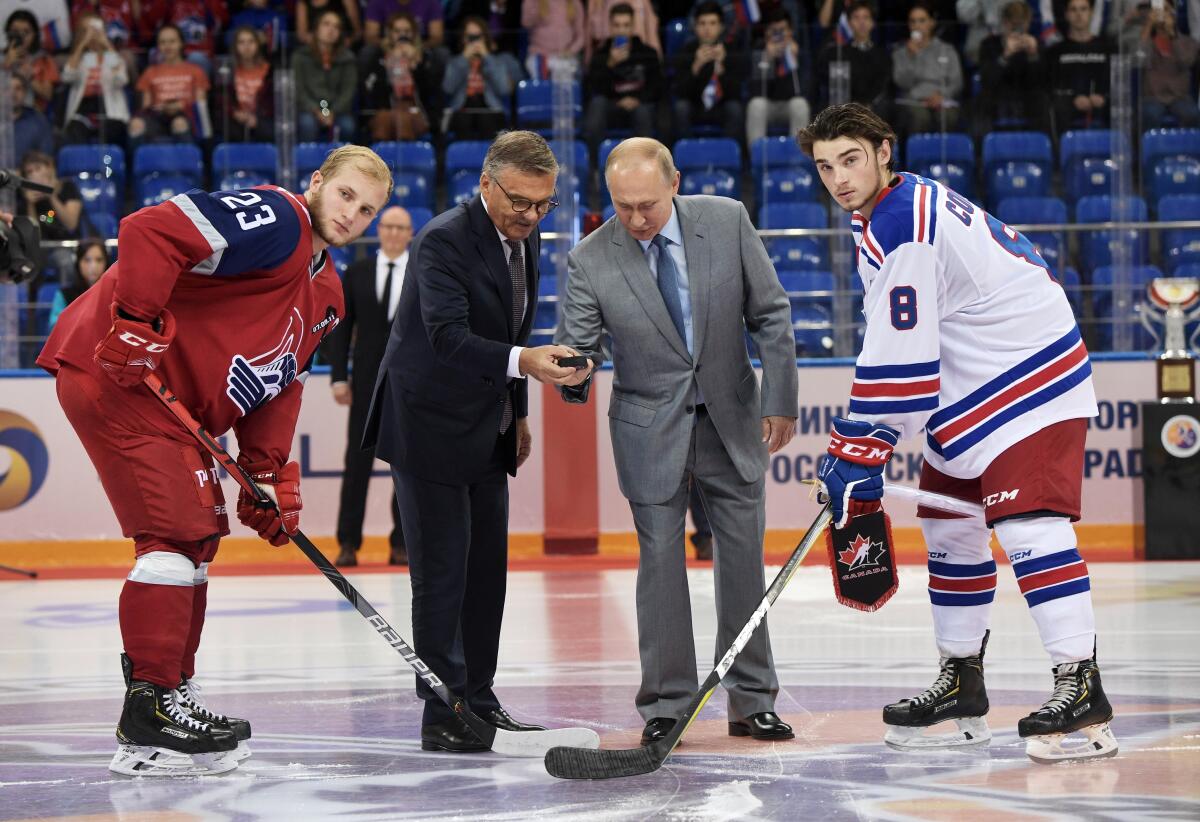
Some of the resentment landed on favorite son Jari Kurri — the first Finn elected to the NHL Hall of Fame — who went to work with the Russians as the team’s general manager.
Kurri has said all along that his only motivation in working with the Russians was to elevate the status of Finnish hockey.
“We wanted to help the players realize their dream of the NHL by playing in the toughest league in Europe,” he explained recently.
Though Jokerit competed reasonably well in its new league, the team’s working-class fan base in East Helsinki was never quite able to forgive him.
Now Kurri and the team have a shot at redemption.
The Russian invasion of Ukraine has had a profound effect on Finland. Ordinary citizens are bracing for war should Russia decide to open a new front. The government has rewritten its foreign policy and is applying to join the North Atlantic Treaty Organization military alliance.
And Jokerit is coming home to Finland’s premier professional hockey league.
A hockey wunderkind, Kurri was 9 when he joined Jokerit’s development program in 1970 — three years after the team’s founding.
Finland was still smarting from the loss of territory to the Soviets during World War II as well as the shame of having little choice but to embrace the U.S.S.R. as its primary trading partner.
Hockey was Finland’s salve in such dark times, and Kurri became a national hero with his speed and finesse on ice. No one in the country had ever seen a high-scoring forward who could also play defense with such intensity.
He turned professional at age 16 with Jokerit and three years later — following mandatory military service — joined the Edmonton Oilers. There he became Wayne Gretzky’s right-hand man on one of the winningest teams in NHL history.
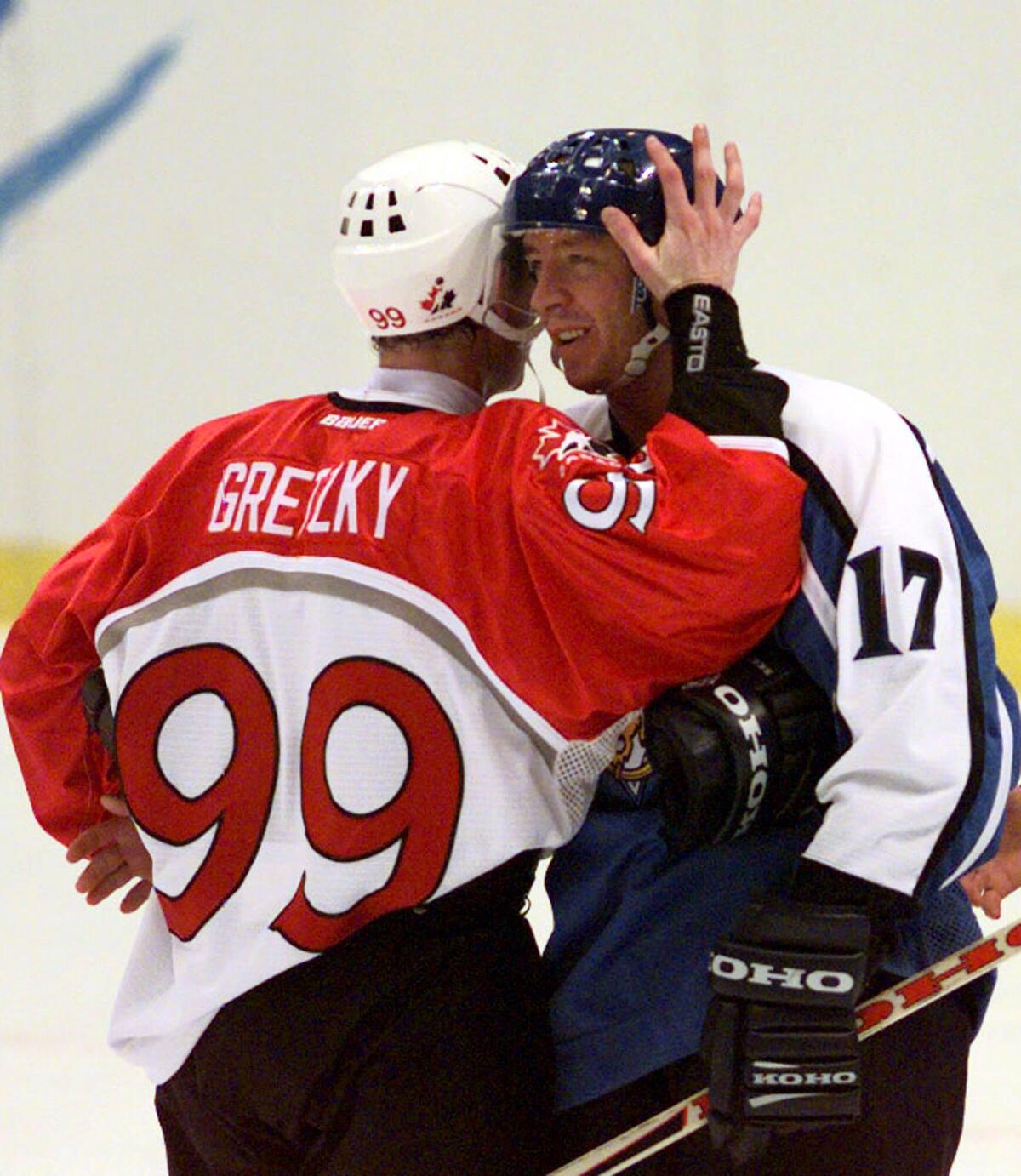
Back in Finland, the economy was suffering because of the collapse of the Soviet Union. Jokerit wasn’t providing much happiness either.
The team had loyal fans and a bad-boy image — its name translates to Jokers, and its logo is a jester — but it was losing money and games.
Its fortunes began to change when Harry Harkimo, a businessman known for racing yachts, assumed control as majority owner in 1991 and began signing high-profile players.
Jokerit won the first of its five SM-Liiga championships that season. Kurri, who by that time had moved to the Los Angeles Kings, provided another boost when he rejoined Jokerit during the 1995 NHL lockout and led the team to the European Cup championship.
After finishing his NHL career as the highest-scoring European in the history of the league, he returned to Finland as general manager of the national squad.
In 2013, Harkimo decided he was losing too much money in the hockey business.
“He had to do something or he would’ve gone bankrupt,” said Ilkka Larva, a sports agent whose father was part of Jokerit ownership in the 1980s. “I think a lot of people in his shoes would’ve done the same thing.”
While sports franchises are routinely sold, the outrage in Finland was over who bought into the team: Russians.
Gennady Timchenko, founder of the Russian energy company Gunvor, grew his fortune to $20 billion after Putin gave him an oil-export license.
Brothers Boris and Arkady Rotenberg, childhood friends of Putin, own Russia’s largest construction company for gas pipelines and electricity lines.
Two of the three oligarchs had Finnish passports — Timchenko through business ties forged during the 1990s and Boris Rotenberg through his wife’s family — positioning them to satisfy Putin’s aspirations to expand the Kontinental Hockey League into Europe.
Created in 2008 as a vanity project for Putin, the KHL hemorrhaged money but survived because of the largesse of oligarchs trying to stay in the good graces of the president.
On the day of the sale, a Jokerit fan told a Helsinki newspaper he felt that Harkimo had spat in his eye, using a word a bit stronger than “spit.”
Harkimo and some Finnish partners retained 51% of the team. Now a member of parliament, he declined to be interviewed for this story.
The Russians also bought the 14,000-seat Hartwall Arena, where Jokerit would continue to play its home games.
Kurri returned to Jokerit as general manager while the sale was in motion. The new Russian owners loved him not only for his hockey fame but also as a popular face for a franchise about to encounter a severe public-relations backlash.
When Jokerit was in the Finnish league, fans piled into buses and trains to see their team play in cities across Finland.
But the KHL was strange and different. Its 23 other teams were spread out over the breadth of Russia as well as Belarus, China, Latvia and Kazakhstan. Travel costs and visa requirements were prohibitive for most fans.
“The community broke apart,” said Roope Räty, vice chairman of Eteläpääty, Jokerit’s independently operated fan club. “There was a lot of anger.”
He said fans would never accept the Russians: “That’s built-in here, how we don’t trust them.”
The animosity worsened after 2014, when Putin invaded Ukraine and annexed the Crimean peninsula.
In an attempt at damage control, Boris Rotenberg’s son, Roman, who was general manager of Russia’s national team, entered the picture as the new public face of the Russian ownership.
The hope was that he would be more palatable because he had spent much of his childhood in Helsinki, spoke fluent Finnish and had no sanctions against him. But few people were fooled.
Kurri didn’t improve his reputation in Finland when he joined the board of the KHL a few months after the takeover of Crimea.
Jokerit won its division in 2016, but success on the ice was overshadowed by mounting pressure on the Russian owners to divest.
In 2019, the oligarchs finally relented and sold their 49% stake. A series of transactions left Kurri as the team’s sole owner — until he sold a 40% share to Finnish mining company Nornickel Harjavalta.
That unleashed a new round of anger. The company is a subsidiary of Moscow-based Norilsk Nickel, which is owned by Vladimir Potanin, another Russian billionaire and Putin confidant.
And the oligarchs who sold their shares retained a controlling interest in the team’s home arena.
This season, the team finished second in its division and made the playoffs. But it was hard to celebrate amid the buildup of Russian troops along the Ukrainian border.
On Feb. 24 — three days before Jokerit was scheduled to be in Moscow for its first playoff game — Russia invaded.
The next day, Kurri announced that the season was over for Jokerit.
“To wake up and see that Russia had attacked Ukraine, that was it,” he recounted. “In my mind it was clear that was the end of our year.”
More significantly, it was the end of Jokerit’s time in the KHL. Kurri withdrew the team from the league and resigned his position on the board. Then he bought out Nornickel’s shares to become the sole owner.
Finnish authorities seized Timchenko’s 22% stake in the arena after the European Union placed him on a sanctions list. Hartwall, a Helsinki beverage company, withdrew its naming-rights sponsorship and took down its signs.
The building was shuttered, canceling many sporting events and concerts. But authorities said it cannot be confiscated while the owners are still making rent payments on city-owned land.
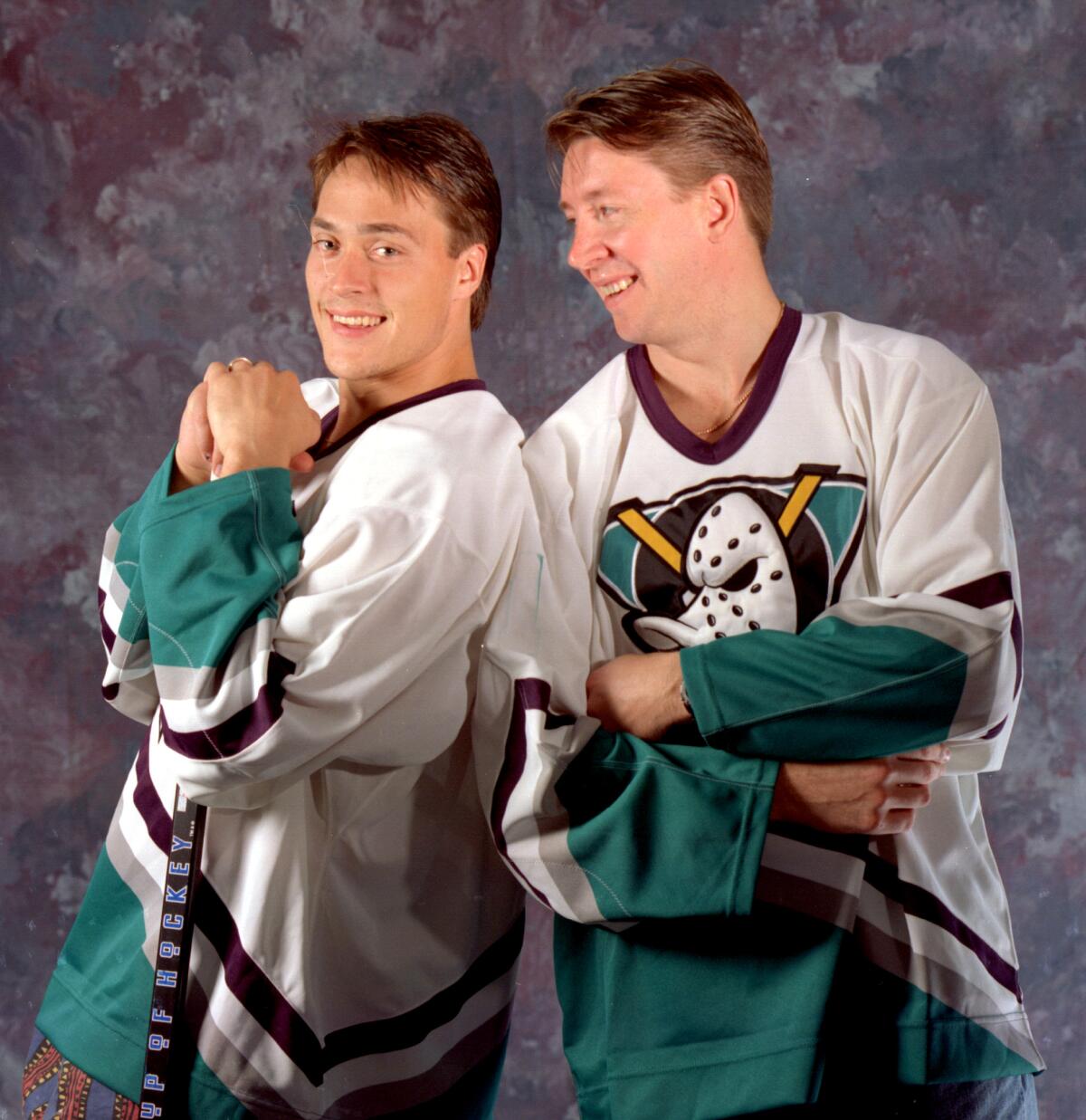
The Finnish league has agreed to take Jokerit back if at least 10 of its 15 teams agree. A Finnish television station last week quoted anonymous league sources saying Kurri’s history with the Russians could spark some resistance, though probably not enough to matter.
In the best-case scenario, the team would not resume play until the 2023-24 season. Kurri is looking for investors to share the financial burden.
Teemu Selänne, a former Jokerit star who played 14 seasons of his NHL Hall of Fame career with the Anaheim Ducks, recently said he has put together a group to buy the arena, but that nothing can happen until the Russians are divested.
He has also offered to commute from his home in Orange County to Helsinki once a month to help his longtime friend Kurri with the team.
Of all the things Kurri must do to reboot Jokerit, rebuilding trust with the fans might be the hardest.
“If we look at his role, it doesn’t look so good,” said Räty, the fan club official. “He was working with the Russians and he was part of the KHL board.”
“Then again, he was the one who said ‘no more’ to the KHL. He resigned from the board. Fans are divided.”
Brian O’Neill, an American who played for Jokerit from 2016 until this year, said that Kurri “has gone through a lot of pain.”
“People are still pretty angry about getting out of the league, and it’s going to take some time to heal,” he said. “But if anyone can rehab the reputation of Jokerit, it’s him.”
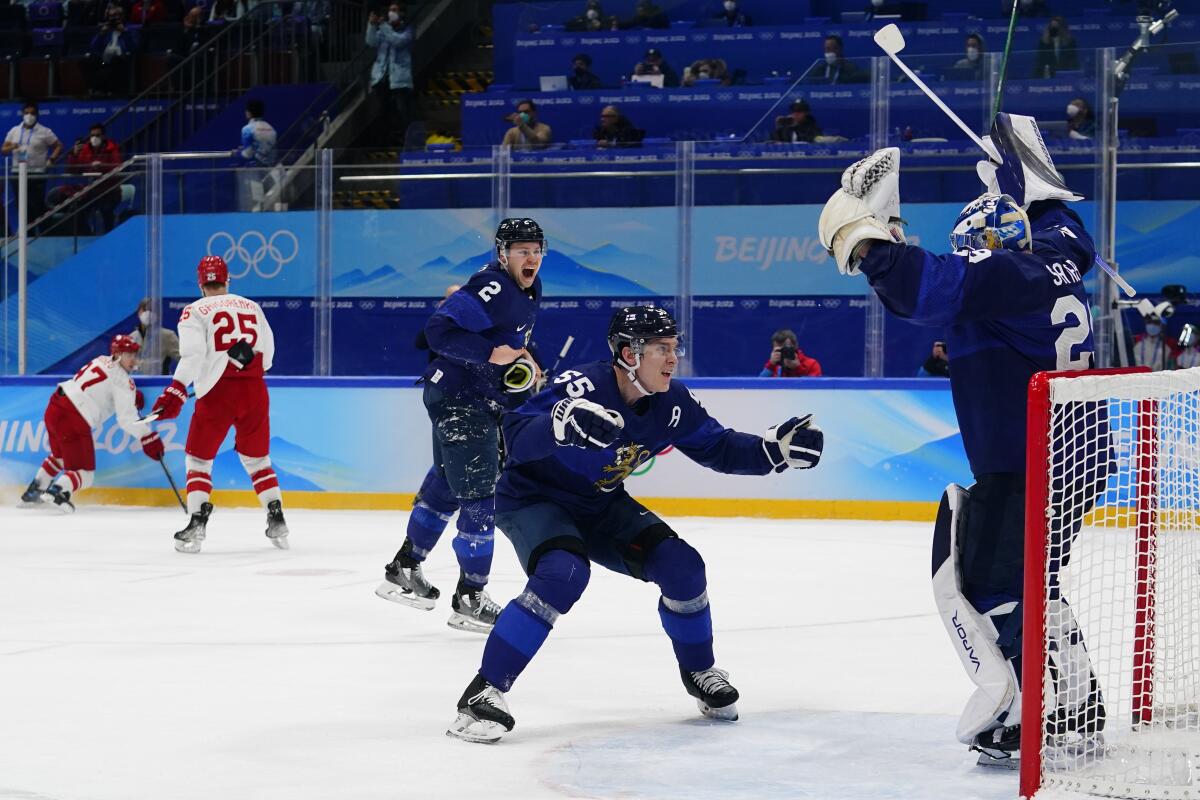
Kurri said he still believes that Jokerit is a better team for having played in the Russian league — and that Finnish hockey had also benefited.
This year at the Beijing Olympics, Finland won gold with a 2-1 victory against Russia and was elevated to No. 1 in the world. Several members of the national team played for Jokerit.
What Kurri said he never fully anticipated was how politics and war would spill over into sport.
“The Russians outside of hockey hurt us in a lot of ways,” he said.
Hunt is a special correspondent.
More to Read
Sign up for Essential California
The most important California stories and recommendations in your inbox every morning.
You may occasionally receive promotional content from the Los Angeles Times.












